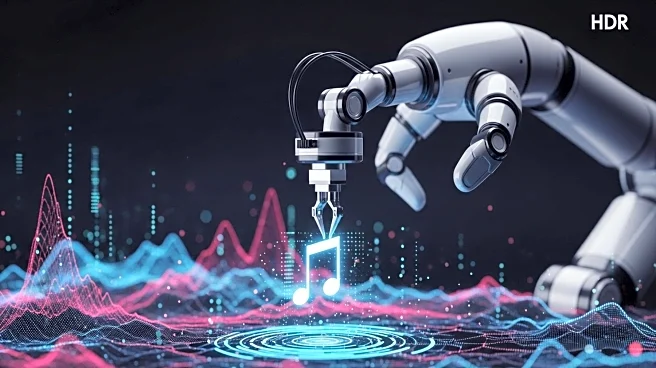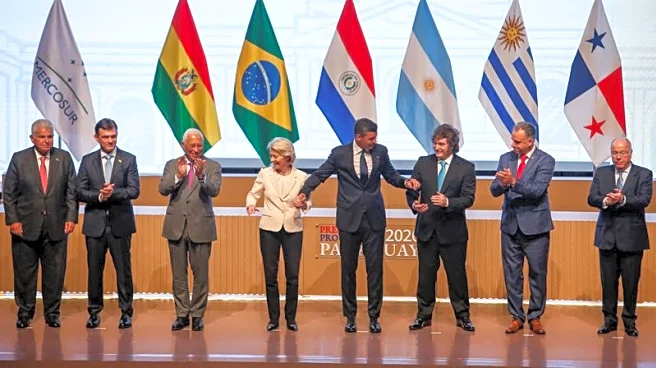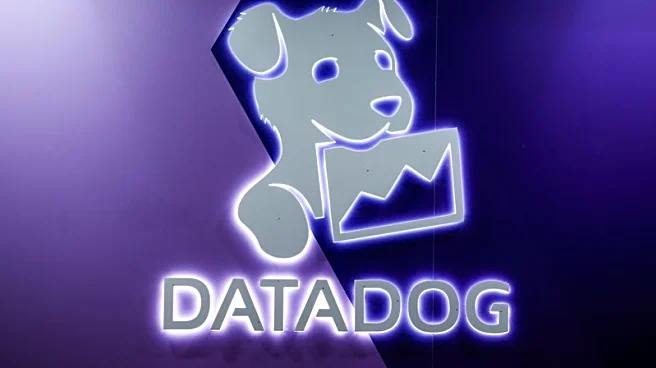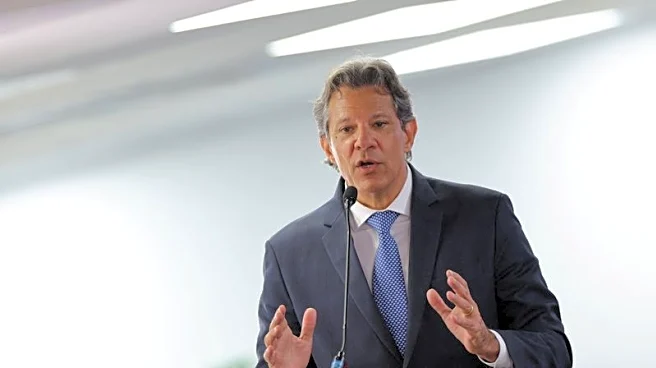What's Happening?
Spotify has announced new measures to address the challenges posed by AI-generated music on its platform. Over the past year, the company has removed more than 75 million tracks deemed 'spammy' due to their AI origins. These tracks often involve unauthorized vocal impersonations and fraudulent uploads to artists' profiles. Spotify is enhancing its spam filter to prevent mass uploads and duplicates, and is collaborating with industry partners to establish a standard for AI disclosures in music credits. This initiative aims to provide transparency about the role of AI in music creation, whether in vocals, instrumentation, or post-production.
Why It's Important?
The rise of AI-generated music presents significant challenges for the music industry, including potential exploitation of artists' identities and dilution of royalty pools. By implementing these safeguards, Spotify seeks to protect artists from deceptive practices and ensure that royalties are fairly distributed. The establishment of an industry standard for AI disclosures is crucial for maintaining trust in the music ecosystem, allowing listeners to understand the origins of the music they consume. This move also highlights the need for ongoing adaptation to technological advancements in the music industry.
What's Next?
Spotify plans to roll out its new music spam filter conservatively, monitoring its effectiveness and adjusting as needed to avoid penalizing legitimate uploads. The company will continue to invest in resources to protect against impersonation tactics and enhance its content mismatch process. As AI technology evolves, Spotify is committed to updating its policies to support a trustworthy music ecosystem for artists, rightsholders, and listeners.
Beyond the Headlines
The ethical implications of AI in music creation are significant, as they challenge traditional notions of artistry and authenticity. Spotify's efforts to establish transparency and protect artists' identities reflect broader industry concerns about the impact of AI on creative processes. This development may lead to long-term shifts in how music is produced and consumed, with potential changes in copyright laws and industry standards.









